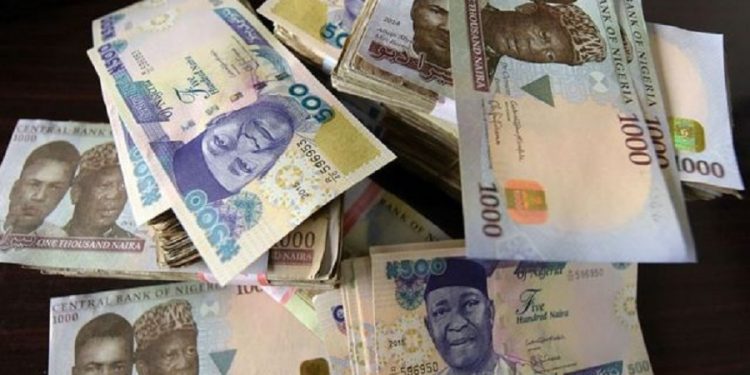Naira on trial: Is devaluation the way out?
The topic of devaluation is one that never quite goes away in Nigeria as the nation’s currency is frequently locked in a struggle for value against the US Dollar and other foreign currencies.
Only recently, Vice President Osinbajo stirred the waters and reignited long-standing debates on the CBN’s currency management policies, knocking the apex bank for ineffectively managing the current exchange rate crises bedevilling the nation.
While many read the statements of the number 2 citizen in Nigeria to mean that he was suggesting that the naira be devalued – again – to “reflect market realities,” the Vice president’s Office has since released a statement to refute this assertion. But the deed, as they say, has already been done, leaving analysts with no choice but to examine – again, the awkward topic of devaluation of the naira in the Nigerian context and within the ambit of the nation’s peculiarities.
Should devaluation be considered?
The International Monetary Fund (IMF) has long advocated for increased openness and flexibility in foreign exchange markets and has urged Nigerian officials to start the process of harmonizing multiple exchange rates.
The IMF Mission Chief in Nigeria, Jesmin Rahman, at an interview before the release of the report said, “The IMF’s recommendation is gradual but clear and multi-step exchange-rate reforms so that everybody knows where Nigeria’s going, which is often more important than what you do in terms of devaluation.’’
The benefits of devaluation would be visible in exports, to be sure. Nigerian products would become more affordable and competitive to international buyers. Increased exports should result in a reduction in the current account deficit. This is critical if a country’s current account deficit is substantial due to a lack of competitiveness.
However, because of the structural impediments that plague Nigeria’s economy, taking the devaluation route may be tantamount to the nation shooting itself in the foot.
Nkwodimmah Pascal, Finance Manager at Opera NG told Nairametrics that “CBN unification of the exchange rate would be important for establishing policy credibility, encouraging more foreign capital inflows, especially reducing the high rate of CBN intervention in the forex market. However, the timing of this unification must be perfect as the downside may affect everyday Nigerians in terms of hyperinflation.”
He added, “I believe the ultimate goal of the CBN would be to have a unified rate in line with other developed countries but much attention has to be paid to the fiscal and monetary policy meant to strengthen the Naria.”
Chief Executive Officer, Economic Associates, Dr Ayo Teriba, gave his opinion on how to stabilise the naira.
He said: “The exchange rate is a mere indicator of the balance of supply and demand forces in the foreign exchange market. Those who are discussing exchange rate developments without reference to the unfolding realities of demand and supply are chasing the shadows instead of substance.”
Teriba quoted figures from the 2020 statistical bulletin of the Central Bank of Nigeria. He said, “Nigeria’s annual average net goods exports inflow of $34bn from 2005 to 2014 had dropped to an annual average inflow of $5.9bn from 2015 to 2019, before dipping steeply into the steep net outflow of -$16.4bn in 2020 (that was a $50bn shortfall relative to the 2005-2014 average) and it is likely to remain a net outflow in 2021.”
Dumebi Udegbunam, Fixed Income trader at United Bank for Africa (UBA) stated that devaluation is a better sweet pill to swallow for a nation’s currency. For a net exporting country, devaluation provides better export competitiveness, increases revenues from exports and puts more money into the hands of citizens. A very good example of a country that has benefited from this is china, which is the largest trade nation in terms of the sum of its exports and imports.
For a net importing country like Nigeria, however, a devaluation will help increase revenue but in turn, reduce purchasing power. The nation will thus, be fanning the embers of the two evils that it currently faces (rising inflation and low purchasing power for the people) if we devalue.
Dumebi further explained that devaluation won’t solve the exchange rate crisis as the more robust solution would require the nation to become more productive.
“There is however light at the end of the tunnel if we get things right by encouraging exports and productivity, engaging in massive backward integration which helps in increasing the ease of doing business, creating a more attractive and sustainable environment for FDI and FPI inflows and finally, creating better sync between fiscal policy and monetary policy,” he said.
What are the consequences of Naira devaluation?
Some of the direct and immediate consequences of devaluation on Nigerians would be:
- An upsurge in how much in naira is needed to purchase FX for concerns such as school fees, medical bills, BTA, PTA, and other purposes.
- An erosion of purchasing power as more cash would be needed to purchase basic goods and services without a necessary wage increase; a situation that can easily create room for agitations by workers, increase in crime rate and anarchy.
- A repricing of FX-indexed loans, which could dovetail into an increase in nonperforming loans (NPLs) and create instability in the financial system.
- A rise in the cost of importing consumer items and raw materials for manufacturing.
- A rise in unemployment and underemployment stemming from business shutdowns, pay cuts and layoffs to reduce business overheads.
- A rise in the cost of servicing government debts.
A long road ahead
There are no quick fixes to the exchange rate conundrum as the problems that have led the naira’s value to this point are hydra-headed and systemic. Classic examples are the congestion and duplicitous taxation issues that the Apapa ports in Lagos have come to be known for, the fact that many of Nigeria’s export products are rejected overseas for lack of standardization, the reality that cargo ships and planes would rather leave the nation’s shores empty than freight goods at prohibitive costs, again coming from multiple taxations, falling healthcare and education standards that are driving Nigerians to seek alternatives abroad at huge dollar costs, among others.
To reverse the trend of a falling exchange rate would be to fix most of these problems particularly those relating to revenue generation as even the finance minister has stated that the country needs to improve on its revenues.
For its part, the Central Bank of Nigeria (CBN) is placing huge bets on the Dangote Refinery to deliver the projected 30% savings in FX that would have been spent on petroleum products importation. The CBN governor, Godwin Emefiele disclosed this during a foreign investors’ meeting held in New York while answering a number of questions raised by foreign investors.
“The Dangote refinery once it begins production would be a major FX saving source for Nigeria. In Nigeria, from the FX we spend on imported items, importation of petroleum products consumes close to about 30%. Dangote refinery has the capacity to produce 650,000 barrels per day of refined crude oil. If the 650,000 is sold in Naira it would be a major FX saver for Nigeria,” Emefiele said.
The refinery is, however, projected to commence operations next year, a subtle reminder that the nation may still be several months away from the ideal situation forex-wise.








